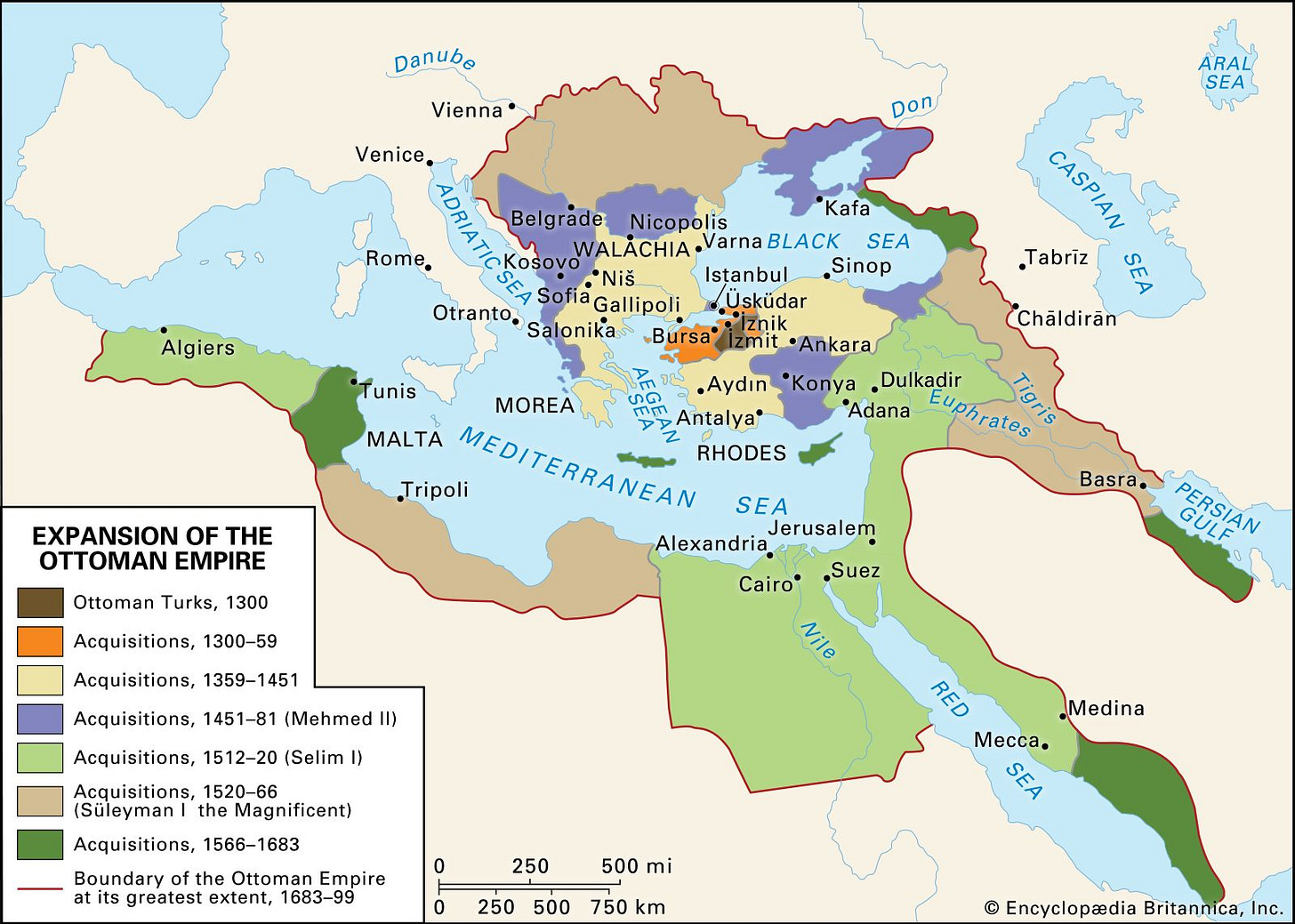Ottomans: Religiously Authoritarian???
The Middle East and North Africa presents a puzzle. Despite flourishing Islamic civilisations, the region not only fell behind economically but also became distinctively authoritarian and religious.
Political scientists Faisal Ahmed and Ahmet Kuru suggest that sultan historically consolidated power by empowering the ulama (religious scholars), who in turn preached obedience to authority. Together, this could explain why territories captured by Muslim armies are still much more authoritarian and religious.
Previously, I believed that narrative. But emerging evidence reveals striking paradoxes. While Ottoman religious scholars enjoyed unprecedented state integration - with sultanic mosques controlling prestigious colleges and state-appointed professors - religious practices remained remarkably diverse. The sultan was supreme yet struggled to extract taxes from a population far larger than European states. The empire built innovative institutions yet persistently failed to control its territory. Rather than a strong state imposing religious orthodoxy, we find an empire caught between institutional constraints and environmental challenges - where formal centralisation masked profound weakness.




